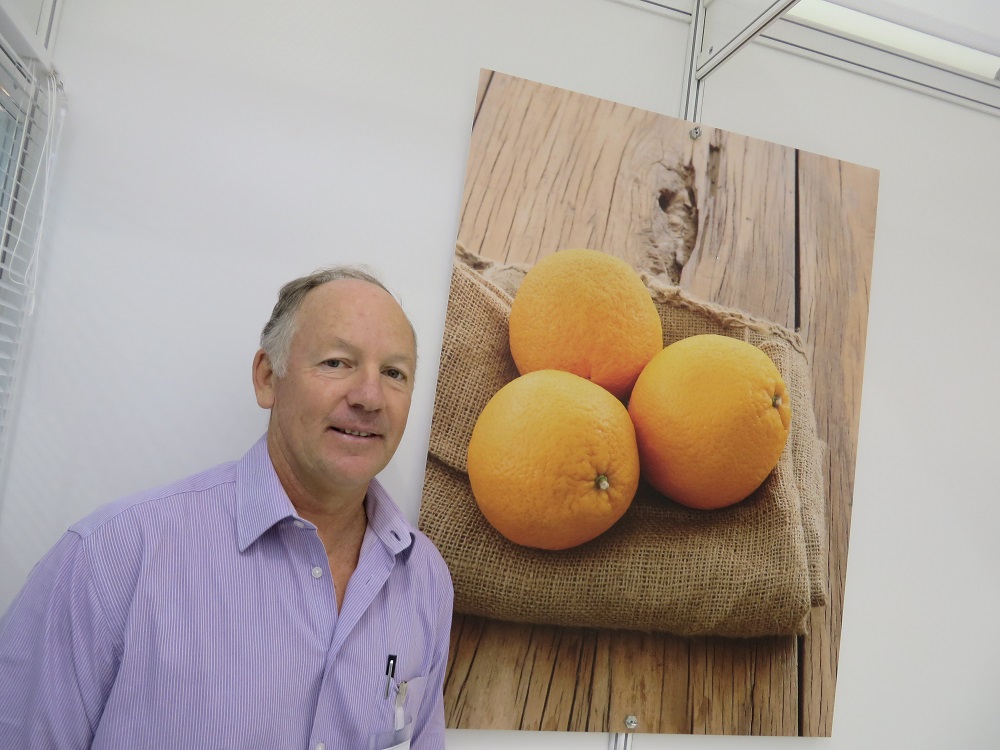Q&A: South African Citrus Growers Association CEO speaks on the current season, challenges and growth projections

Citrus fruits are one of the most important export products in South Africa, accounting for 54% of the country's total fruit shipments.
According to government figures, on average, 54% of total citrus production is exported, 25% is processed, and 21% is consumed locally as fresh fruit. Additionally, exports account for 81 % of the total value of production and oranges make up 70 % of export volume.
Regarding this season, Justin Chadwick, the CEO of the South African Citrus Growers Association (CGA), said in his latest report on September 13 that after many downward revisions by the Variety Focus Groups as the season unfolded, recently the trend has
been for upward revisions as favorable market conditions encourage late-season exports.
"The total packed and passed-for-export volume for 2024 is now slightly above 2023 levels, but well below the initial estimate and the Vision 260 levels," Chadwick said.
The CGA's latest report shows that by the end of week 36, South Africa has packed 155.6 million 15kg-cartons and shipped 133.3 million.
The latest prediction for the season sets total 2024 production at 165.5 million boxes, while the original estimate was 181.7 million.
Freshfruitportal.com spoke with Justin Chadwick about the current season, challenges for South African growers, and his vision for the future.
Overall, how has this season played out for South African citrus producers?
It was a very unusual season. Unforeseen weather events influenced the export figures. Because of drier and warmer conditions, fruit sizes were somewhat smaller. Floods in the Western Cape, severe wind in the Eastern Cape, and frost in Limpopo also had an effect. A very good local juicing price also caused exports to be less. Final export figures will only be released in about a month or so, but we have had to continually adjust our estimates downward and the current projection is a total of 164.4 million 15kg cartons.
What have been the biggest challenges of the season?
The weather factors set our above-posed challenges. While there were no severe delays at our ports, port efficiency and better logistics are a priority for the citrus sector. With an increase in citrus production projected over the next nine years, South Africa will have to improve its port and rail logistics to make sure the production translates into foreign revenue and local job creation.
What growing opportunities do you observe in the Asian market for South African citrus, specifically in China?
China is an important market for SA citrus receiving 8 to 10% of exported fruit. Since 2004 the export protocol has been revised a number of times, each time resulting in improved entry requirements stimulating more trade. The Chinese approach of sound scientific justification for import requirements is welcomed. There needs to be continuous engagements as research continues to establish risk mitigation measures that are less trade-restrictive.
Import duties are imposed on SA citrus imports putting SA at a disadvantage compared to competitors with free or preferential trade agreements.
The BRICS partnership needs to move from a purely political grouping to one where BRICS members engage in improving the trade environment to benefit member countries' citizens.
What is your take on Spain's continuous call to ban South African citrus alleging shipments with black spots?
Currently, the South African government has advanced the trade dispute regarding the European Union's requirements to the panel stage at the World Trade Organisation. We feel that EU trade measures on CBS are not founded in science - the fruit is not a pathway for CBS to spread, only leaves and twigs are.
In the past two seasons, various false CBS identifications were also made - raising questions about the EU's testing.
How is this situation affecting South African growers at the moment and what measures are being taken to prevent shipments from carrying the disease?
South Africa already has a stringent CBS management system that mitigates the risk of CBS-infected fruit being present in consignments - these include control treatments, monitoring, and inspections.
What is your projection for the industry within the next 3-5 years?
Because of new plantings bearing fruit, the South African citrus industry is set to increase its citrus production. If all role-players come together - and issues such as the unfair EU trade measures on CBS and FCM, as well as port and logistics issues within South Africa, are addressed - the citrus industry can export an additional 100 million 15kg cartons by 2032 and create tens of thousands of more jobs. In the next five years, volumes could grow above 200 million cartons.







































